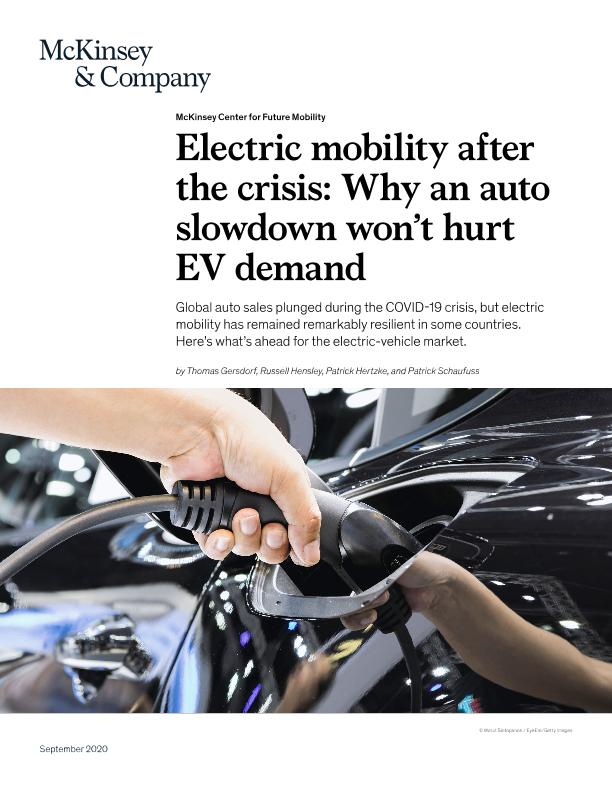Electric mobility after the crisis : why an auto slowdown won't hurt EV demand

Contenido multimedia no disponible por derechos de autor o por acceso restringido. Contacte con la institución para más información.
| Tag | 1 | 2 | Valor |
|---|---|---|---|
| LDR | 00000cam a22000004b 4500 | ||
| 001 | MAP20200031918 | ||
| 003 | MAP | ||
| 005 | 20201007162522.0 | ||
| 008 | 180511e20200901usa|||| ||| ||eng d | ||
| 040 | $aMAP$bspa$dMAP | ||
| 084 | $a892 | ||
| 245 | 1 | 0 | $aElectric mobility after the crisis$b: why an auto slowdown won't hurt EV demand$cThomas Gersdorf...[Et al.] |
| 260 | $aNew York$bMcKinsey & Company$c2020 | ||
| 300 | $a8 p. | ||
| 490 | 0 | $aMcKinsey Center for Future Mobility | |
| 520 | 3 | $aIn 2019, electric mobility seemed poised to reach a tipping point. With more than two million electric vehicles (EVs) sold around the world, electric cars accounted for a record 2.5 percent of the global light-vehicle (LV) market. Then the COVID-19 pandemic hit, endangering lives, shaking up supply chains and workforces, and shutting down factories. The economic slowdown has significantly disrupted the auto industry, causing rapid declines in LV sales. | |
| 650 | 4 | $0MAPA20100011164$aVehículos eléctricos | |
| 650 | 4 | $0MAPA20150019967$aVehículos autónomos | |
| 650 | 4 | $0MAPA20080617219$aIndustria automovilística | |
| 650 | 4 | $0MAPA20120019492$aTendencias | |
| 650 | 4 | $0MAPA20080542559$aVentas | |
| 650 | 4 | $0MAPA20110017835$aMovilidad | |
| 651 | 1 | $0MAPA20080637743$aEuropa | |
| 700 | 1 | $0MAPA20200020059$aGersdorf, Thomas | |
| 710 | 2 | $0MAPA20080442569$aMcKinsey & Company | |
| 830 | 0 | $0MAPA20180006760$aMcKinsey Center for Future Mobility |

